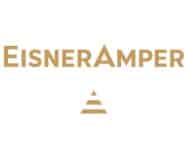This post outlines how to determine the value of a company – both private and public. You can calculate or evaluate a company’s true valuation through a variety of different methods. Whether you are considering purchasing a company or investing, these values hold true. Bear in mind, we are not investing advisors and all content is simply information on this subject. Please consult your own advisors when possible in all matters related.
How Valuation of a Company is Done
The value of a business ultimately depends on the buyer’s price. There is no right way to objectively determine the value. However, as Steven Robins states in his question and answer column (Entrepreneur, January 11, 2004), “you could probably come up with several wrong ones.”
The idea of business valuation is to predict how likely you are to win or lose in this business situation.
• Start by looking at the value of the business assets. What does the business own, equipment, inventory, i.e., replacement costs.
• The business’ books. A company’s financial documents (i.e. balance sheets, income statements, etc.) may give a good idea of the value of assets and the level of profit.
• You can look at the business as a money stream. A company’s revenue may be able to give you an estimate of value. Utilizing business valuation databases, business valuation consultants may be able to determine an estimate of value based on a multiple of its revenue. Looking at purchase prices for similar businesses you can sometimes work out what that multiplier is.
• Perhaps profit is the fundamental measure of business value. Estimation of the profit over several years can give you a sense of how much the business is actually worth to you, as a practical matter.
• You need a goodly sample of profit numbers to take a reliable measure of value, since profits fluctuate with the activities of competitors and market conditions.
• Many estimators use the technique of factoring interest rates into their calculations, as if you were going to invest the business profits every year, to determine value. This will give you a measure of how much in treasury bills you would have to buy to equal the business’ profit.
Sometimes non-financial and, perhaps, less quantifiable things can enter into business value estimates. As an example, location can play a role. A business may be more valuable if its located conveniently to the owner. If the business meets some ideal or some long-held dream it could be worth more. However, someone estimating the value of a business should be careful not to let the heart too thoroughly rule the head.
How to Determine the Value of a Company
Many entrepreneurs purchase a company already in existence, enticed by the advantages of an already running company. However, it is essential to look at a company’s valuation before completing any purchase, or even before considering the business as a viable transaction. What is the return on investment that the investor can expect? How is the business doing in sales? Can the investor expect to gain back the investment, and how long will it take to gain back the investment? Is the cash flow of the business enough to support the current debt or any proposed future debt? If the entrepreneur purchases the business utilizing debt, can that debt be paid back using the business’s profits? These are just some of the questions that can be answered by a thorough valuation analysis.
The following are a few methodologies credentialed valuation experts use to discover the actual valuation of a company.
- Multi-period Cash Flow Method
This methodology is used by investors who are knowledgeable about the business’ future or are knowledgeable about the relevant industry’s future. The multi-period cash flow method models a business’ cash flows 5 to 10 years into the future making educated assumptions regarding a business’ future sales penetration rate, market share and competitive landscape. These future cash flow expectations are then brought back to today’s dollars utilizing company and industry risks and long-term growth expectations all captured by a business’ discount rate.
- Capitalized Earning (Single Period) Method
Similar to the multi-period cash flow method, the capitalized earnings approach is used to determine the value of a business by calculating the net present value (NPV) of expected future profits as measured by cash flows. The capitalization of earnings method determines a single period cash flow (i.e., next year’s cash flow) and capitalizes that cash utilizing the capitalization rate (cap rate). This will take into account the risk that earnings will stop or be lower than the estimate. This method should only be used when there is an expectation of normal or consistent cash flows.
- Market Approach Method
This methodology is used by investors to determine the value of a business or an asset based on the selling price of similar businesses. In the real estate industry, a property’s value can be estimated by looking at comparable sales (i.e., recently sold properties that are similar in size and features and that are located within a close geographic proximity to the property being valued). In a business valuation, the market approach can be used to calculate the value of a business by identifying ‘like’ companies in similar industry’s and making adjustments for differences in size, entity type, management, etc.
- Assets Method
This methodology is used to determine a business’ value by estimating the value of all of an entity’s assets (net asset value) minus the net value of its liabilities. The asset-based approach basically asks what it would cost to recreate the business. This methodology can be useful if the assets and liabilities as carried on a business’ financial statements (book value) would be a good estimate of the assets fair market value.
Determining the value of a business is done by using one or a combination of these methods. An entrepreneur interested in purchasing a business should consider all of some of these methods to discover if the business is worth its asking price.

